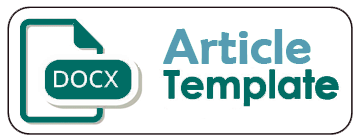DIGITAL PEDAGOGY IN LANGUAGE TEACHING
DOI:
https://doi.org/10.32497/jolali.v2i2.4765Abstract
This conceptual article presents a framework for using technology and digital tools in education to enhance and support learning. The framework is based on a review of the literature on digital pedagogy and language teaching and the authors' personal experience with digital pedagogy in language education. Digital pedagogy uses technology and digital educational tools to enhance and support learning. Digital pedagogy can be an excellent tool for teachers in language education to generate engaging and interactive student learning experiences. There are some examples of digital pedagogy in language teaching. Overall, digital pedagogy offers numerous opportunities for language teachers to enhance their teaching and provide engaging learning experiences for their students. The framework consists of critical components, each of which will be discussed in detail, with examples of how they can be implemented in language teaching.
References
Donovan, L., Green, T. D., & Mason, C. (2014). Examining the 21st-century classroom: Developing an innovation configuration map. Journal of Educational Computing Research, 50(2), 161-178.
Faloye, B. (2022). Sustainable digital pedagogy in language teacher education: Perception of
teachers in Ekiti state government colleges. Faloye, BO (2022). Sustainable digital pedagogy in language teacher education: Perception of teachers in Ekiti state government colleges. International Journal of English Language Teaching, 10(1), 13”“22.
Goodyear, P. (2015). Teaching as design. Herdsa review of higher education, 2(2), 27”“50.
Moreno-Guerrero, A. J., López-Belmonte, J., MarÃn-MarÃn, J. A., & Soler-Costa, R. (2020).
Scientific development of educational artificial intelligence in Web of Science. Future Internet, 12(8), 124.
Hirsch, B. (2012). Digital humanities pedagogy: Practices, principles and politics (p. 447).
Open Book Publishers.
Nanjundaswamy, C., Baskaran, S., & Leela, M. H. (2021). Digital Pedagogy for Sustainable Learning. Shanlax International Journal of Education, 9(3), 179-185.
Wibowo, Y., Widowati, A., & Purwanti Widhy, H. (2013). Laporan Tahunan Penelitian Hibah Bersaing.
Downloads
Issue
Section
License
Authors who publish with this journal agree to the following terms:- Authors retain copyright and grant the journal right of first publication with the work simultaneously licensed under a Creative Commons Attribution License that allows others to share the work with an acknowledgement of the work's authorship and initial publication in this journal.
- Authors are able to enter into separate, additional contractual arrangements for the non-exclusive distribution of the journal's published version of the work (e.g., post it to an institutional repository or publish it in a book), with an acknowledgement of its initial publication in this journal.
- Authors are permitted and encouraged to post their work online (e.g., in institutional repositories or on their website) prior to and during the submission process, as it can lead to productive exchanges, as well as earlier and greater citation of published work (See The Effect of Open Access).





